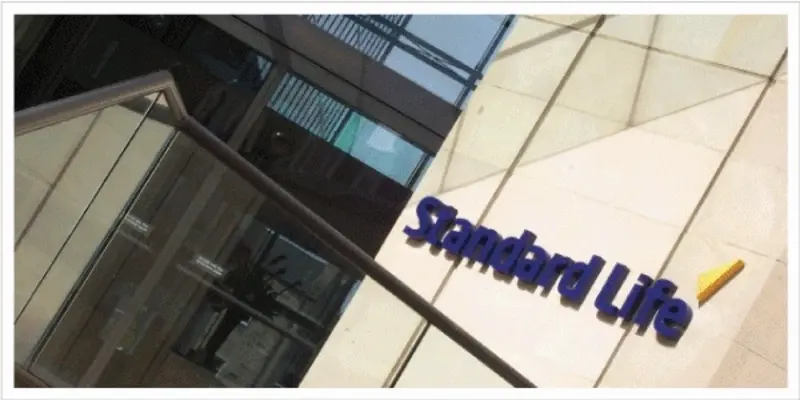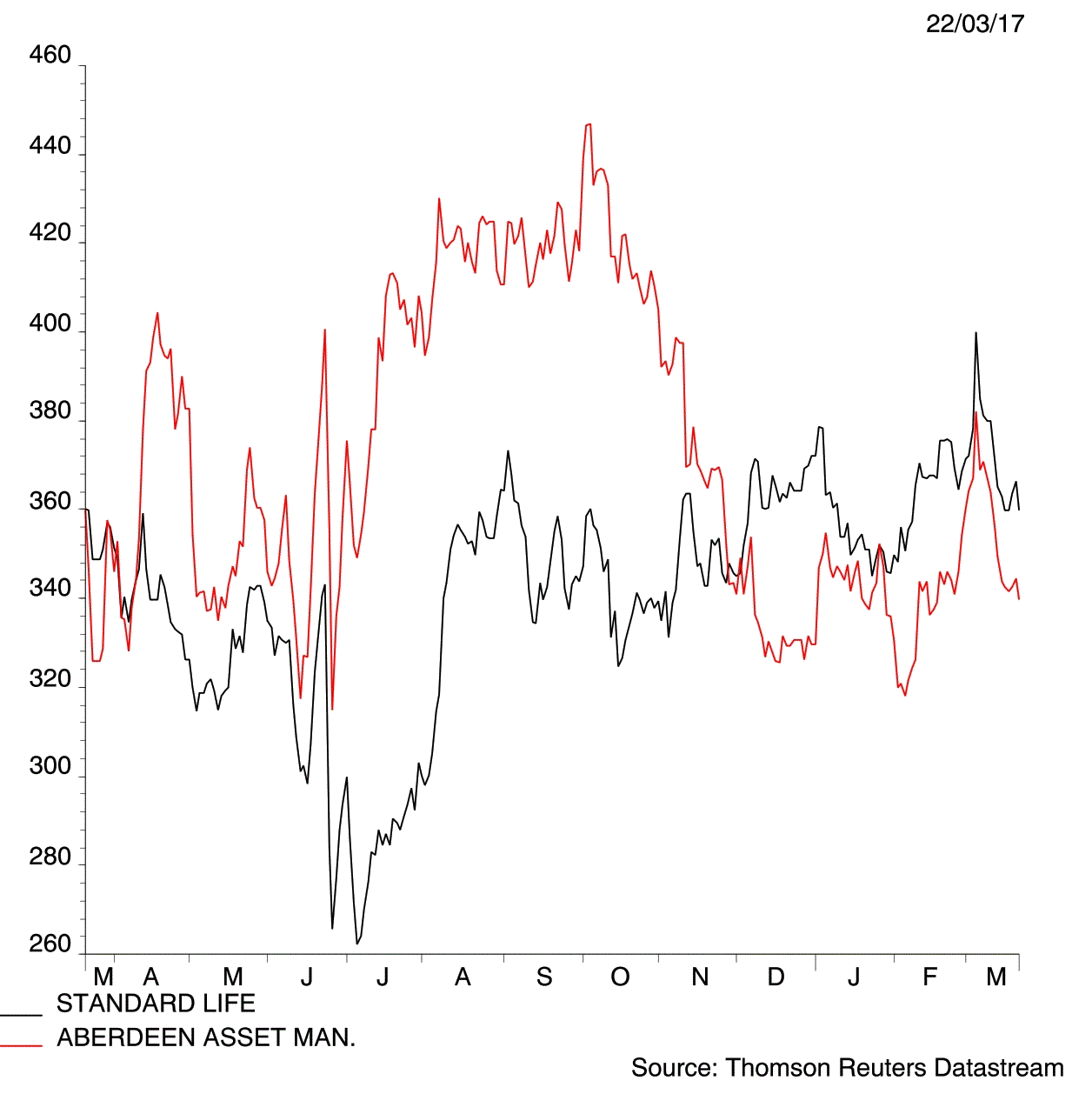
A City analyst believes that insurance giant Standard Life (SL) is paying over the odds for asset manager Aberdeen Asset Management (ADN). The £3.8bn deal, confirmed on 6 March, will create the second largest investment house in Europe.
But Barrie Cornes, analyst at broker Panmure Gordon, thinks Standard Life could have paid less and still secured the takeover.
Cornes argues that if Standard Life had held on and let Aberdeen continue to flounder the asking price could have fallen.
EMERGING MARKETS SQUEEZE
Aberdeen’s exposure to troubled economies in emerging markets led to roughly £100bn of outflows from the firm’s funds over a four year period up to the end of 2016. That saw Aberdeen's share price plunge 49% since trading at 507.5p levels in April 2015.
Standard Life’s shares have slumped about 28% during the same period.
Active fund managers have been under scrutiny for some time, largely because of poor performance. A report by ratings agency Standard & Poor last year revealed that hardly any actively managed funds beat their respective indices over the past decade. Not a single actively managed Dutch equity fund beat its benchmark in five years.
‘We accept that asset management costs are under increasing pressure,’ says Panmure's Cornes, adding that the UK-based Henderson Global Investors tie-up with the US’s Janus Capital further illustrates this.
MERGER ATTRACTIONS
Cornes sees the rationale behind the merger. It will add product diversification with Aberdeen particularly strong in Asia. Also there will be cost savings, estimated at £200 million annualised within 3 years at a one off £320m cost.
On the day the merger was announced Aberdeen’s share price rose 6% with Standard Life up 7%. Both firms have seen their respective share prices drop back to pre-merger levels since as details of the deal have emerged.
DEVIL IN THE DETAIL
One of the sticking points is the proposed dual chief executive officer (CEO) system proposed, which has rarely proved a good idea. Cornes points to the ‘disaster’ of the structure following the Royal Insurance & Sun Alliance merger several years back.
Martin Gilbert, Aberdeen's current CEO, is a big personality and after suffering the ignominy of his firm being demoted from the prestigious FTSE 100 index in March 2016, he may not like sharing duties with Standard Life’s CEO Keith Skeoch.
This may become more of a problem if Gilbert is forced to move operations from his beloved Scottish city of Aberdeen to Edinburgh, where Standard Life is headquartered.
The fallout did not take long after the announcement of the merger. Standard Life’s head of equities David Cumming left on 9 March to ‘pursue other interests’. Randal Goldsmith, senior analyst at fund research firm Morningstar, did not think at the time this would impact how his firm rates Standard Life’s six equity funds rated by his firm.
But for Cornes, he has seen enough. Moving Standard Life from his ‘buy’ to ‘hold’ lists.




